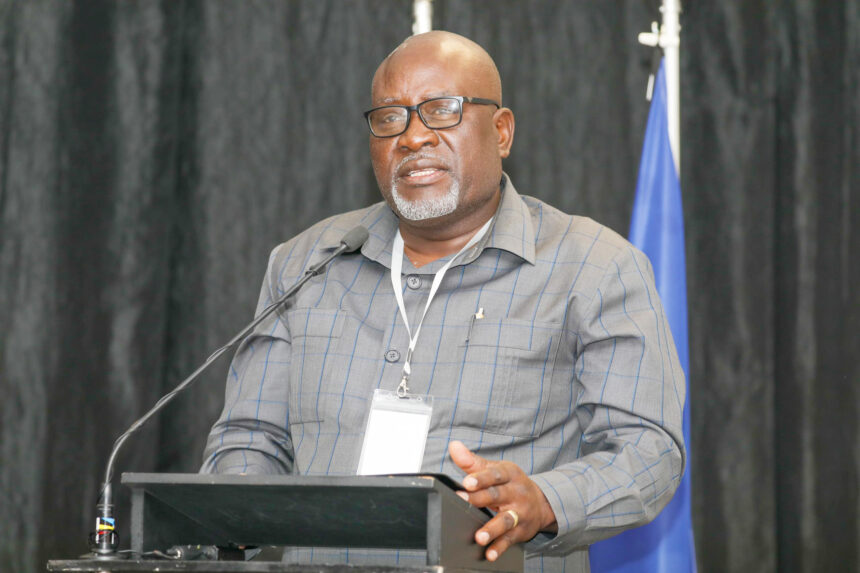Rudolf Gaiseb
Namibia has dealt with a staggering 2.7 million cyberattacks in 2022.
This revelation came to light during Namibia’s first-ever International Cybersecurity Conference and Exhibition (NICSC) that took place from 17 to 19 July 2024 in Windhoek.
NICSC chairperson Paulinus Sheehama said, the alarming statistic underscores the urgent need to fortify regulations governing online platforms by effectively implementing national cyber security strategies, aiming to enhance resilience.
“The vulnerability of businesses to cyber threats poses risks across various sectors, making it imperative to proactively seek solutions to mitigate this phenomenon, and safeguard the interests of Namibia,” he said.
He said cyberattacks are a problem the entire world is facing. It is, therefore, imperative to hold discussions to find amicable solutions to these issues, “which we can fit into the national strategy and national policy.”
The Deputy Minister of Information and Communication Technology Modestus Amutse called for collaboration in restraining cyberattacks, and securing the digital economy.
“Namibia, like many other countries, increasingly relies on digital technologies across sectors such as oil and gas, mining, energy,
aviation, mobile and telecommunications. Cybercrimes know no boundary, and every sector is at risk of cyberattacks, resulting in potential massive financial losses and reputational risks for organisations and individuals,” he said.
The deputy minister said developing countries are facing challenges in securing the digital economy, which requires collective efforts from governments, industry leaders, academia, civil society and all players in the ecosystem.
“Through collaboration, we can develop effective strategies and solutions that will safeguard our digital infrastructure, and enable us to harness the opportunities presented by the digital economy fully,” he said.
The government has nearly finalised the development of the national digital strategy and consolidation of the ICT policy, which are pending submission to Cabinet for approval, he added.
Amutse said the ever-evolving technological space requires responsive legislative and policy frameworks and strategies.
“Consultations on the development of the Data Protection Bill have been completed, which is due for presentation and deliberation at the Cabinet Committee on Legislation (CCL). The Cybercrime Bill is pending refinement before its submission to CCL,” he stated.
Furthermore, Amutse emphasised that the government strongly believes that individual internet users who can unknowingly be the biggest threats to their organisations’ network infrastructure and themselves need to be educated to remain vigilant and safe in cyberspace.
He added that the
National Cyber Security Strategy and Awareness Creation Plan was developed, and is currently in its implementation
phase.
“Salt Essential IT has come on board and signed an agreement with the government to raise awareness of the dangers of cybercrimes, and the importance of cybersecurity to all citizens of this
country, free of charge.”
In response to the cybersecurity challenges in Namibia, Ds Technology and Investment Namibia, in collaboration with Africa Nesia International of
Kenya, organised the conference to engage in discussions with experts on the most effective approaches for Namibia to safeguard itself and its businesses from prevailing cyber threats.
– rrgaiseb@gmail.com



